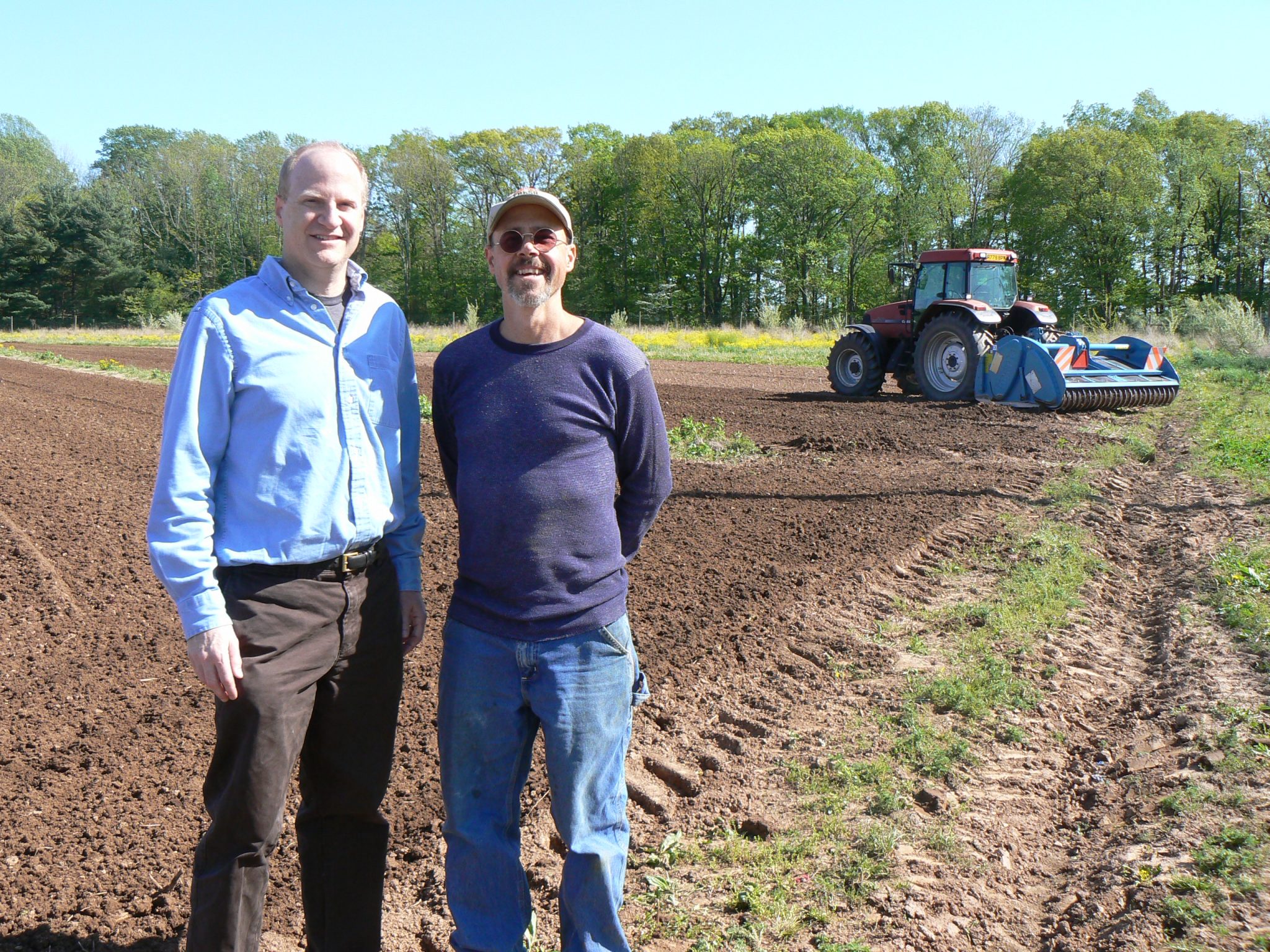Honey Brook Organic Farm will no longer be a fixture on Watershed Institute land, after it was announced that 2020 will be the final year of a partnership between the two entities.
The Watershed Institute and Honey Brook Organic Farm are ending their partnership after 30 years. Honey Brook Organic Farm’s leased acreage on the nonprofit’s land grew from 3.5 acres in 1991 to more than 60 acres of land to grow crops on the nature preserve in Pennington.
“It has been a great partnership and they have really pioneered the organic farming and Community Supported Agriculture model in New Jersey. We are confident that we will have a new farmer next year and will pick it up and start a new chapter,” said Jim Waltman, executive director of The Watershed Institute. “We will continue to model the practices of organic farming.”
Husband and wife duo Jim Kinsel and Sherry Dudas have led the farm growth on the Watershed’s reserve as co-owners. They have had more than 3,000 families annually purchase from the farm each year, according to the Watershed Institute.
“We are sorry to see Jim move on to his next chapter, but we know he wanted to consolidate down to a smaller amount of land,” Waltman said.
Kinsel and Dudas will now consolidate their farming operations to three farms after terminating their lease through provision in their contract. They had in 2007 purchased farmland in Chesterfield to expand their operations into Burlington County and have also rented land in Hopewell Township.
“Next year, we absolutely believe we will have a farm leased to take over the land. We are quite confident,” Waltman said.
The Watershed Institute has always had a farm where the Honey Brook currently resides, since the 1980s when Muriel Buttinger purchased the farm in the early part of the decade and then donated it to the Watershed Institute, specifically for the purpose of organic farming.
“In the early 1980s organic farming was a rare thing to do, which seems kind of weird now because there is so much organic farming laying around. There were some farmers I am told locally that thought we were crazy,” Waltman said. “Then when Jim came in and really started pushing this, they thought he was crazy.”
When the Watershed Institute started having an organic farm on the property the organization wanted to not only inspire people to participate or purchase organic farming, but also learn values.
“A lot of our members want to live their lives in a way that have the least negative impacts on the environment and people feel very positively about eating produce that is healthy for them and their families, and also the water and the land,” Waltman said. “Part of our hosting a farm is a demonstration of values.”
The Watershed Institute had some programming to go along with interacting with the farm. For example, campers in The Watershed Nature Camp would spend a few hours on the Honey Brook Organic farm learning about organic farming and in some cases harvest some of the crops or flour on the farm. The Watershed is now considering whether to expand additional programming involving the organic farm land when a new farmer takes over the land.
“We are always concerned about the release of some of the pesticides and herbicides used in farming, so organic farming is a way to farm that does not include releasing hazardous chemicals into the land and potentially into the surrounding waters,” Waltman said. “Organic farmers use natural sources to combat insects. We are about the health of not only our community and members, but also our environment.”

